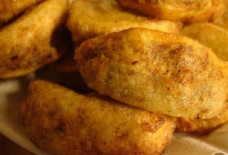On 26 May, a white supremacist stabbed two people to death in my adopted hometown of Portland, Oregon. Ricky John Best and Taliesin Myrddin Namkai-Meche confronted their killer when they saw him shouting Islamophobic slurs at a pair of teenage girls on a city train. In response, he slashed their throats and ran.
The man who committed this crime did so because he felt entitled to harass Muslims. And he knew at least one of the young women sitting in front of him was Muslim, not because he had any meaningful understanding of her religion, but because he saw the garment covering her hair.
It has been a bumper year for Islamophobia in the US – indeed, for hatred of all kinds. And amid the spike in racist violence, there has crystallised a certain definition of what it means to exist as a Muslim in the US today: to be subjected arbitrarily and without notice to a monumentally superficial definition of what it is you are, and await at all times whatever outbreak of individual or institutional violence such a definition might elicit.
My wife and I moved to the US four years ago. Besides the usual trepidation I suspect most Arab Muslim men feel whenever they walk through a Transportation Security Administration (TSA) checkpoint, I experienced no great anxiety at immigrating to this country. From a very young age, I have subsisted on an almost exclusively American cultural diet, and so believed that I understood this place.
It is an astounding fraternity, this brownness – a term applied to Central and South Americans, Arabs, Persians, south-east Asians, an assortment of human beings so broad in origin and experience that they may as well literally be called “Other”.
I have almost no idea how to be brown. But living in the US, I am constantly offered glimpses of what the designation means; how it relates or fails entirely to relate to my own Muslim identity; the lens under which it casts me. You learn quickly.
There are, of course, unwritten rules to my particular flavour of brownness, a small toolkit for getting by: whenever you have to go to the airport, you show up well ahead of time and you bring every conceivable piece of identification, every immigration document. When you speak to a TSA agent, you start with: “How are you?” or “How’s it going?” rather than something more formal, so as to prove your familiarity with the way people speak here and also display your good-as-native English accent. You shave beforehand. If you find yourself driving behind a pickup truck plastered with bumper stickers that say “Certified Isis Hunter” or featuring an illustration of a rifle next to the words “Come and take it”, you ease off the gas and give the guy some space. If someone mangles the pronunciation of your name, you let it slide. Every time anyone expresses pleasant astonishment at how well you speak the language, given you weren’t even born here, you smile and say: “Thanks.”
It’s exhausting. Exhausting.
But it is not new. In a country that loves its clean, clear dichotomies, there are only good and bad Muslims, and both relate exclusively to terrorism. A billion human beings all neatly reduced to cliches, plot devices for the latest season of Homeland. As with every aspect of racism in the US, the rise of the Trump regime has not brought about some fundamentally new form of Islamophobia, but simply empowered its practitioners to shout out loud what previously they might have only whispered.
What is often more frustrating than this sweeping dehumanisation is the tepid way that even champions of mainstream American progressivism argue against it. Throughout the 2016 election, I watched the US’s self-professed liberal politicians denounce everything from Islamophobia to outright torture by pointing out that such things should be avoided because they only serve to make the country less secure.
I don’t care if they make the US more or less secure – the rationale for denouncing inhumanity resides on the moral, not the pragmatic, spectrum. One does not advocate for an end to segregation on account of its economic inefficiency, or internment camps on account of there probably being a better use of the space.
The day after the Portland stabbings, I went to a memorial for the victims. I watched a group of people from all walks of life gather and light candles and make speeches and hug one another and cry. And for a moment, it was almost possible to forget that one need only drive 20 minutes from here before the city gives way to the vast rural gut of Oregon, where people voted overwhelmingly for Donald Trump and Confederate flags still fly high. It was almost possible to forget that, in response to a horrific and high-profile hate crime, the president said exactly nothing for three whole days, before offering a condemnation so half-hearted that many white supremacists undoubtedly assumed it came with a wink and a nod.
To live as a minority in America during the Trump era is to occupy one or more slots on a roulette wheel of cruelty. One week the ball might land on immigrants, the next on the transgender community, the next on black or brown people, Muslims, Jews – anyone whose wealth, skin colour or established societal privilege can’t protect them from an administration whose leaders and supporters mistake brutality for strength.
You keep your head down. You ride out the storm, even when it feels like storm is all there is.
• Omar El Akkad is a Canadian Egyptian novelist and journalist. His debut novel, American War, is out now








